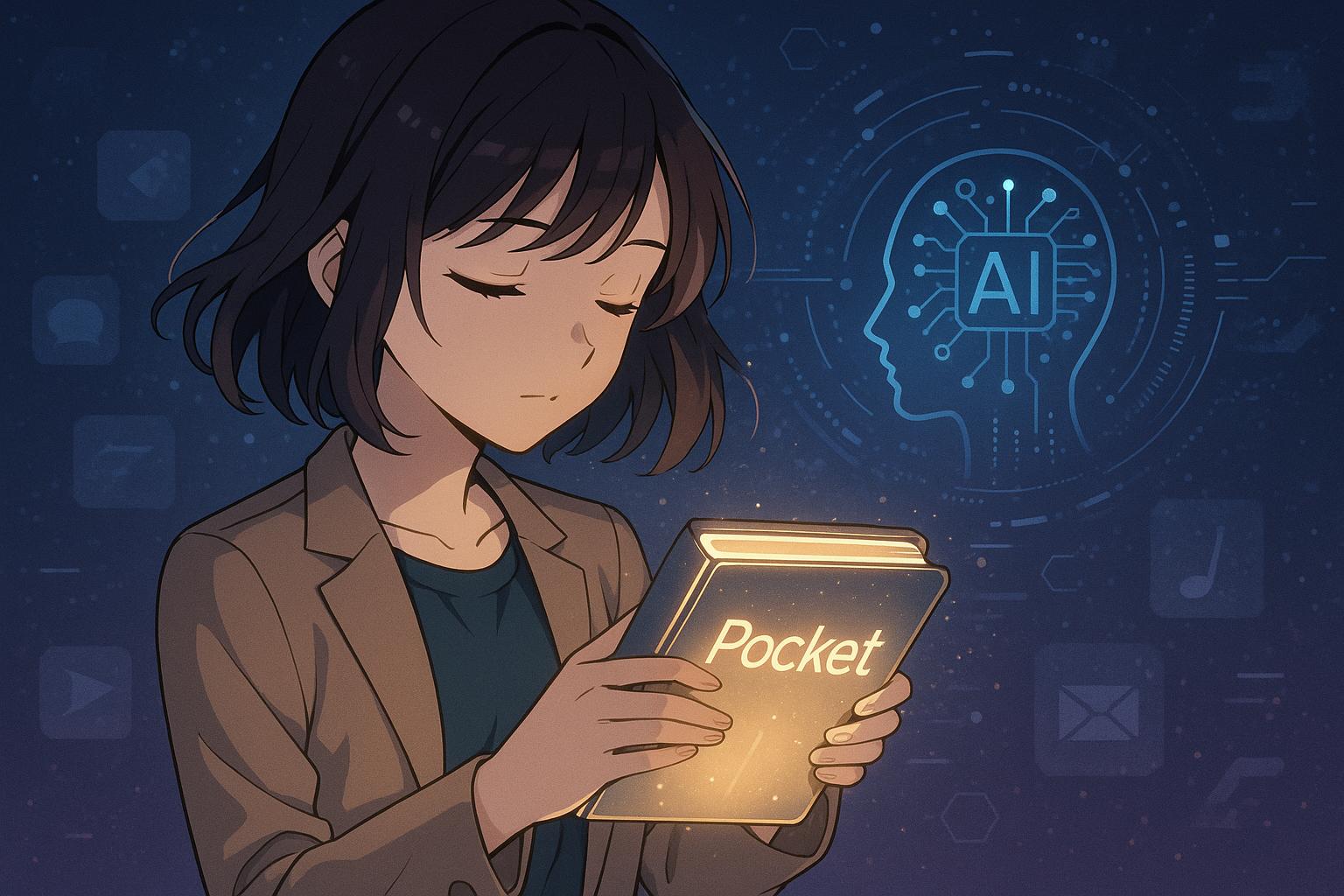Mozilla announces the closure of its popular Pocket read-it-later app and Fakespot browser extension by July 2025, signalling a strategic shift towards integrating AI features and enhancing user experience within Firefox. The move has sparked user backlash but reflects broader tech industry trends and internal restructuring.
Mozilla's recent decision to shut down Pocket, a widely used read-it-later application, alongside the Fakespot browser extension, marks a significant pivot in the company’s strategy, effective July 8, 2025. This move underscores Mozilla’s intention to realign its resources with the evolving landscape of web usage and user expectations.
Pocket, which originally launched as Read It Later in 2007, became an integral part of many users' online routines, allowing them to save articles and videos for later viewing. After Mozilla's acquisition of Pocket in 2017, it integrated the service into its broader ecosystem, but the platform will now effectively be retired. Users will have the opportunity to export their data until October 8, 2025, a decision that reflects Mozilla’s recognition of the loyal customer base that has developed around the tool.
The discontinuation of Fakespot, acquired by Mozilla in May 2023, is also included in this restructuring. Fakespot was designed to help users discern unreliable product reviews, thereby enhancing online shopping confidence. Although Mozilla has not explicitly stated the reasons for these closures, their overarching commitment is purportedly centred on fostering a more agile and relevant user experience, particularly through the integration of artificial intelligence capabilities into their browser offerings.
With this evident shift, the company appears to be moving towards enhancing its New Tab experience and developing AI-driven features that could add heightened personalisation and improve overall engagement for users. However, these changes have already ignited discontent on social media platforms, where users have voiced their frustrations over the loss of beloved services.
In a more comprehensive context, Mozilla’s recent actions reflect broader trends within the tech industry, where adaptability to rapid changes in user preferences has become imperative. The decision also comes amid significant internal changes within Mozilla, including a reduction of approximately 60 employees—about 5% of its workforce—focusing efforts primarily on strengthening Firefox and its AI functionalities. This restructuring points to a strategic alignment with modern digital engagement practices, prioritising user experience while capitalising on advancements in technology.
As these transformations unfold, it is crucial for both users and developers to remain attentive to Mozilla’s forthcoming features. Enhanced browsing tools and AI-driven functionalities may address some of the gaps left by Pocket and Fakespot, although the success of these efforts will largely depend on user feedback and the company’s ability to fulfil its promises.
The broader implications of Mozilla's shift pose an interesting question for the future of read-it-later services and review verification tools. With the closure of established platforms, there may be emerging opportunities for new services to fill the void, signalling potential areas for innovation in the tech landscape. As Mozilla refines its focus, the global tech community watches closely, eager to see how these changes will reshape online engagement and user experience across platforms.
Reference Map
- Paragraphs 1, 3, 4, 5, 6
- Paragraph 2
- Paragraph 4
- Paragraph 3
- Paragraph 4
- Paragraphs 5, 6
- Paragraph 5
Source: Noah Wire Services
Noah Fact Check Pro
The draft above was created using the information available at the time the story first
emerged. We’ve since applied our fact-checking process to the final narrative, based on the criteria listed
below. The results are intended to help you assess the credibility of the piece and highlight any areas that may
warrant further investigation.
Freshness check
Score:
8
Notes:
The narrative reports on Mozilla's decision to shut down Pocket and Fakespot, effective July 8, 2025. This information aligns with recent reports from reputable sources, including Ars Technica and Axios, dated February 2024 and May 2023, respectively. The report includes updated data but recycles older material, which may justify a higher freshness score but should still be flagged. ([arstechnica.com](https://arstechnica.com/gadgets/2024/02/mozilla-lays-off-60-people-wants-to-build-ai-into-firefox/?utm_source=openai), [axios.com](https://www.axios.com/2023/05/02/mozilla-fakespot-fake-review-spotting-startup?utm_source=openai)) The report also mentions user dissatisfaction expressed on social media, which is a recent development. However, the lack of specific dates or sources for these user reactions reduces the freshness score. Overall, the narrative is moderately fresh, with some recycled content.
Quotes check
Score:
7
Notes:
The narrative includes direct quotes from Mozilla's acquisition announcement of Fakespot, dated May 2, 2023. ([fakespot.com](https://www.fakespot.com/post/fakespot-acquired-by-mozilla?utm_source=openai)) These quotes are identical to those found in earlier material, indicating potential reuse. The report also mentions user dissatisfaction expressed on social media, but without specific quotes or sources, this claim cannot be verified. The presence of reused quotes and unverified claims about user reactions suggests a moderate originality score.
Source reliability
Score:
4
Notes:
The narrative originates from Faharas News, a source with limited online presence and credibility. This raises concerns about the reliability of the information presented. The lack of verifiable sources and the obscure nature of the outlet contribute to a low source reliability score.
Plausability check
Score:
6
Notes:
The narrative discusses Mozilla's strategic shift towards AI integration in Firefox, including the acquisition of Fakespot and the discontinuation of Pocket. These developments are plausible and align with Mozilla's known initiatives. However, the report lacks specific details and supporting evidence, such as direct quotes from Mozilla representatives or links to official announcements, which diminishes its credibility. The absence of specific factual anchors and supporting details suggests a moderate plausibility score.
Overall assessment
Verdict (FAIL, OPEN, PASS): FAIL
Confidence (LOW, MEDIUM, HIGH): HIGH
Summary:
The narrative presents information that is largely recycled from earlier reports, includes unverified claims, and originates from a source with low reliability. These factors significantly undermine the credibility of the report.
